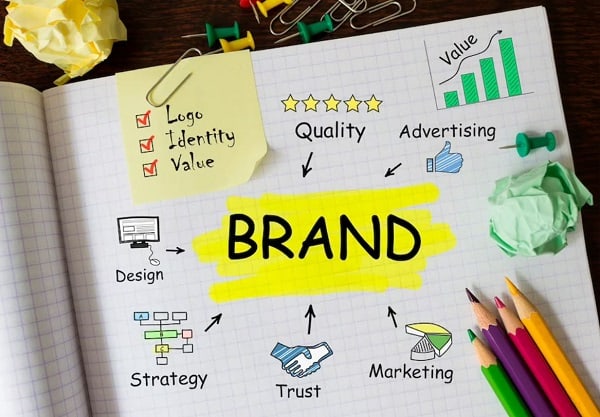With the sweeping popularity of social media and influencer marketing, building a strong brand has become important for both the business and its owner.
But there’s a distinct difference between personal branding and business branding, each with its own set of advantages and considerations.
We’ll make it easier for you by giving you the pros and cons of each approach and help you make an informed decision, whether you want to focus on your personal brand or building your business’s branding online.
Also check out: 5 Steps to Build your Digital Brand
What is personal branding?
Building a personal brand involves creating a distinct and consistent image of yourself, both online and offline, to showcase your expertise, values and unique qualities.
Personal branding certainly offers some advantages that can positively impact both your personal and professional life.
Let’s walk through the pros and cons of personal branding.
Pros of personal branding
Why is personal branding important? These benefits collectively contribute to your personal and professional growth, enabling you to achieve your goals, make a positive impact and create a lasting legacy.

of yourself, online and offline.
Increased recognition and visibility. You can stand out in a crowded marketplace by creating a unique and memorable identity. By consistently showcasing your expertise, you become more recognizable within your industry, leading to increased visibility and awareness.
Enhanced credibility and trust. A well-established personal brand positions you as an authority in your field. When you consistently share valuable insights, opinions, and knowledge, others see you as credible and trustworthy.
Business growth. Entrepreneurs can leverage their personal brand to grow their business, as customers often trust businesses with a relatable and credible face behind them.
Networking and relationship building. Personal branding facilitates networking by attracting like-minded individuals, potential clients, mentors and collaborators. It can open doors to various opportunities, such as speaking engagements and partnerships.
Thought leadership and influence. A well-developed personal brand positions you as a thought leader in your industry. You can shape conversations, drive discussions and influence trends.
Personal branding offers some advantages that can positively impact both your personal and professional life.
Cons of personal branding
While personal branding has numerous benefits, there are also potential downsides or challenges to consider.
Inauthenticity and over-promotion. Focusing too much on building a personal brand can sometimes lead to a perception of inauthenticity. If your efforts come across as self-promotion rather than genuine sharing of expertise and value, it can alienate your audience and damage your credibility.
Time and effort. Building and maintaining a personal brand requires consistent effort over an extended period. This can be time-consuming and divert your attention from other important tasks, such as your core business responsibilities.
Vulnerability to criticism. As your personal brand becomes more visible, you might encounter criticism or negative feedback. Not everyone will resonate with your message or approach, and dealing with criticism can be emotionally challenging.
Remember: It’s important to approach personal branding with authenticity, humility, and a genuine desire to provide value to create a meaningful impact on your target audience.
Business branding: building a corporate identity
Meanwhile, business branding focuses on establishing and promoting a distinct identity for your company or organization.

It involves shaping the perception of the brand in the minds of consumers, clients and stakeholders. Let’s explore the pros and cons of business branding.
Pros of business branding
Focusing on building your business branding will contribute to business growth, customer loyalty, and market leadership because of these benefits:
Recognition and recall. Strong branding leads to better recognition and recall among customers. When your brand is consistent across various touchpoints, customers can easily identify and remember your business, which is essential for building long-term relationships.
Customer trust and loyalty. A well-established brand inspires trust and confidence in your products or services. When customers have positive experiences and consistent interactions with your brand, they’re more likely to become loyal advocates and repeat buyers.
Differentiation and competitive edge. Effective branding sets your business apart from competitors. A unique brand identity, value proposition, and messaging help you stand out in a crowded marketplace, making it easier for customers to choose you over your competitors.
Brand equity and perceived value: A higher brand equity represents the intangible value of your brand. You can command higher prices for your products or services due to the perceived quality and trust associated with your brand.
Emotional connection and engagement. When customers feel a connection to your brand’s values, story and personality, they’re more likely to engage with your content, share their experiences and become loyal supporters.
A well-established brand inspires trust and confidence in your products or services.
Cons of business branding
While business branding offers numerous advantages, there are potential downsides or challenges to consider.
Limited personal connection. Establishing an emotional connection or personal touch with customers can be more challenging when the focus is on the business as a whole. Unlike personal branding, where individuals can create deep connections with their audience.
Less flexibility. Business branding requires a clear and consistent brand message across all touchpoints. This may limit the ability to explore different avenues or adapt to evolving market trends quickly.
Difficulty in adaptation. Once a brand identity is established, making significant changes can be challenging. Rebranding efforts, if not executed carefully, can confuse customers and erode the trust you’ve built.
Remember: A well-crafted brand strategy goes beyond a logo and colors—it encompasses every aspect of how your business is perceived and experienced by customers.
It’s important to approach business branding strategically and with a long-term perspective.
Also read: What Your Brand Colors Say About Your Business
What’s important is building a strong brand
Both personal branding and business branding have their unique advantages and challenges. It can be difficult to decide which to focus on, especially if you’re running a business in a competitive market where people look up more to personalities than brands.

could also work!
The choice between personal and business branding depends on your goals, preferences, the nature of your business and your customer touchpoints. Some may find success in a hybrid approach, blending personal and business branding elements to strike the right balance.
Ultimately, understanding the pros and cons of each approach will help you shape your brand strategy effectively, ensuring long-term success and growth in the competitive world of branding.
What’s more important is building a strong brand that your target audience can resonate with.
More business tips to boost your brand online:
How to Manage Your Brand Reputation Online
How to Win Customers through Emotional Branding
How to Build A Community Around Your Brand?






